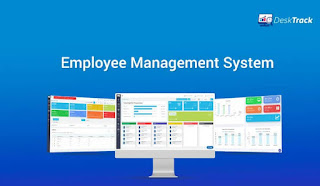The Role of Communication in Fostering Employee Engagement
Employee engagement is one of the determining factors in the success of any corporate organization. Engaged employees are motivated, productive, and committed to achieving the company's goals. Effective communication is a key component of fostering employee engagement. When employees feel informed, heard, and valued, they are likely to be engaged in their work and committed to the success of the organization. Having a separate employee management system can help in planning and strategizing all these things. In this blog, we will talk about the crucial role of communication in employee engagement.
It is no secret that there are multiple benefits of employee engagement, both
for employees and employers.
Effective communication helps to create a positive work environment where employees feel valued, respected, and
inform about the company's goals and objectives.
Here are some ways communication can foster employee engagement:
Maintain Transparency:
Employees feel more engaged when they have a clear
understanding of the company's goals and how their work contributes to those goals. Communicating transparently about the company's strategy, goals, and challenges
helps employees feel connected to the organization. Avoid hiding the project details from the employees if it is
not highly confidential. If the employee
knows what is going to be the result, it will motivate them to work harder. For instance,
If there is a project
which is in the national
interest, employees will feel
motivated to work if they know about
it.
Provide Feedback:
Regular feedback and constructive criticism are essential
for employee engagement. It helps employees
understand how they are doing and where they need to improve.
Providing feedback regularly
helps employees stay on track and feel valued. However, while providing feedback, make sure that you aren’t too
hard on them, as this may discourage them. Create an environment where feedback is taken as learning and given as
teaching.
Initiate Two-way communication:
Employees
feel more engaged when they feel heard. Encouraging employees to share their thoughts, opinions, and ideas creates a
culture of open communication. This helps employees feel valued and engaged in the company's success. There are
various types of employee engagement ideas that you can use to
foster and initiate two-way communication. Moreover, rather than just talking to them, try to connect
with them on a personal level. A more meaningful conversation will create a
strong bond.
Ensure Clarity:
Communication that is clear and concise helps employees understand their roles, responsibilities, and expectations. This clarity helps employees feel more confident
and
engaged in their work. Let them know what exactly they
have to do and keep them informed about changes,
if any. This will help them deliver
their task correctly
and boosts the company's
performance. Try creating an environment where the employee can ask doubts regarding the tasks they are given and
don’t feel embarrassed about it. This will ensure their involvement in the project, and you will get great results. Moreover,
this can also be inculcated by using employee
engagement software.
Give Recognition:
Regular communication about employee achievements and milestones and recognizing employees
for their contributions are essential for fostering employee
engagement. Employees want
to feel that their work is valued, and recognition helps to create a positive work environment. For instance, you can
give regular awards or make a wall of fame for the employee of the year. Giving recognition to your employees is
one of the best employee engagement solutions, which makes the
employee feel valued for their work and time.
Conclusion:
Overall, effective
communication is essential
for fostering employee
engagement. By providing
transparency, feedback, two-way
communication, clarity, and recognition, companies
can create a culture that fosters engagement, productivity,
and success.


Comments
Post a Comment